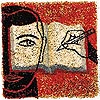 Software
Software
Genius Minus Perspiration
A Boston company aims to make invention automatic
By Simson Garfinkel
Thomas Edison called genius “one percent inspiration, 99 percent perspiration.” Now Valery Tsourikov, a Russian-born entrepreneur, believes he has found a way to package the 99 percent and sell it as software.
 Tsourikov’s Boston-based company, aptly named “Invention Machine,” has created and patented a program to speed the process of coming up with new technologies. “We understand how people invent,” Tsourikov claims. “It’s cause-effect analysis, backward reasoning and forward reasoning.” The magic of genius, he says, comes from having a large knowledge base and knowing how to apply it.
Tsourikov’s Boston-based company, aptly named “Invention Machine,” has created and patented a program to speed the process of coming up with new technologies. “We understand how people invent,” Tsourikov claims. “It’s cause-effect analysis, backward reasoning and forward reasoning.” The magic of genius, he says, comes from having a large knowledge base and knowing how to apply it.
To capture that magic in software, Tsourikov’s program comes with more than 6,000 “cause and effect” processes and techniques, gathered from different fields of engineering. Each effect is integrated into a semantic network so that the computer knows when it can be applied and what it does. Much of the database stems from U.S. patents that have been painstakingly categorized. The company’s newest program, called CoBrain, automates this data-gathering process as well. As a result, Tsourikov says, when companies buy Invention Machine, they can easily add their own proprietary processes and techniques to the database.
“It’s much more than a really good encyclopedia,” says Tom Carlisle, director of new technology at Phillips Petroleum. “It retrieves information in context.” Carlisle’s group is using Invention Machine to figure out ways of eliminating microscopic amounts of oxygen in natural-gas collection systems, which cause the equipment to corrode. “The problem-analysis section [of the software] has helped us clarify what the problem really is.”
Tsourikov and four colleagues were granted a United States patent on Invention Machine’s technology in May, but the seeds of the idea go back more than two decades. In 1975, Tsourikov was finishing a master’s degree in computer science in Minsk. “AI [artificial intelligence] was very big at that time, but MIT, Stanford and CMU [Carnegie Mellon University] had already taken all of the good topics,” he recalls. So, Tsourikov decided to create “a computer [program] that was able to invent things.” Tsourikov worked nights on the IBM 360 computer at the Moscow Electrical Communications University, ultimately producing a program that could invent and test novel mathematical algorithms. In 1983 he contributed his software to the university’s part of the international SETI (Search for Extra-Terrestrial Intelligence) project. Tsourikov’s donation: 20,000 algorithmsed by the computeror distinguishing intelligent communications from background noise.
As any inventor knows, the key to success is being in the right place at the right time. Taking advantage of Gorbachev’s economic reforms, which were opening Soviet markets in the early 1990s, Tsourikov started his own company in 1991 in Minsk to commercialize the technology. “In two years we had 800 major companies in Soviet industry running our program,” says Tsourikov. In one notable success, engineers at an oil company were looking for a way to make oil flow faster through pipelines. Using Invention Machine’s software, an engineer learned that he could decrease the viscosity of the oil by adding trace amounts of a polymer to the crude, the same way adding a polymer to blood can help it flow through constricted arteries.
Getting the business established in the United States proved to be a bigger challenge. In late 1991, Tsourikov flew to New York with five floppy disks in his briefcase. “Every inventor in Russia knew that if you showed up with an invention in the U.S., you would be handed a blank check,” he recalls sardonically. Unfortunately, such a check is only as good as the people writing it, and Tsourikov’s dreams were delayed several years after he signed an exclusive license with a group of financially strapped investors.
Today, things are back on track: Invention Machine has 140 employees in Russia and 80 in the United States and Europe, with annual sales of more than $10 million. Whether Edison would be proud is a different question. “I love what they are doing,” says Jane Linder, associate director of Andersen Consulting’s Institute for Strategic Change. But Linder says some engineers, especially older ones, are less enthusiastic. She recalls one company where the engineers were hostile to Invention Machine’s presentation. “These were leading, very creative people, who saw the potential of the technology to put into the hands of ordinary engineers, or younger ones who hadn’t made their reputations, the ability to do things that would surpass these folks’t want it.”
Simson L. Garfinkel is a contributing writer for Technology Review. His latest book is Architects of the Information Society (MIT Press), a history of MIT's Laboratory for Computer Science.
Links



